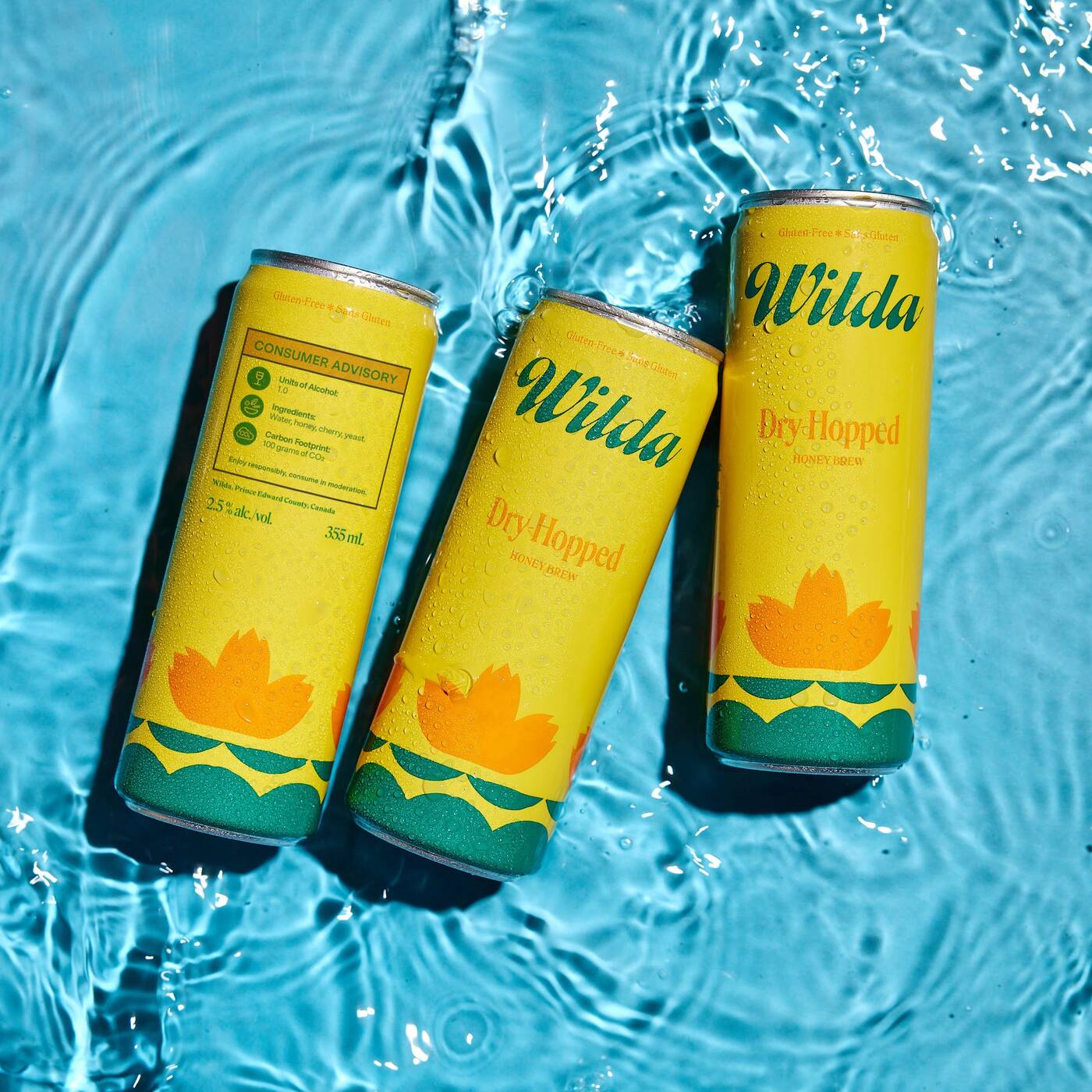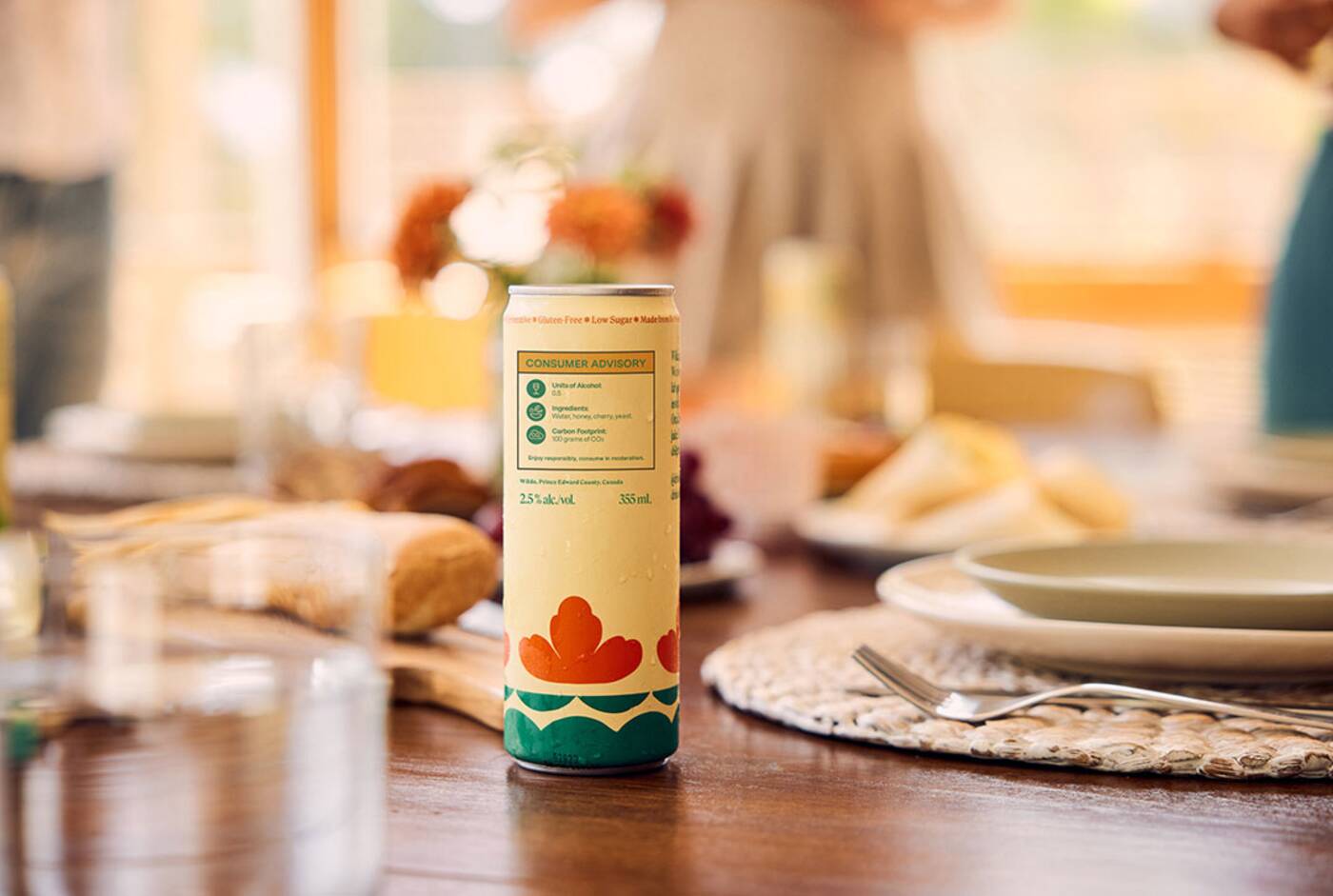
Canada could get new labels on alcoholic drinks and here's what they might look like
One Ontario-based company is responding to growing calls for warning labels on alcoholic beverages, and is proposing a "consumer advisory label" on boozy products.
Wilda is a Prince Edward County-based producer of low-alcohol and bee-friendly natural spritzers.
The company states that other alcohol brands have resisted calls for enhanced regulation following the recent release of alcohol consumption guidance by the Canadian Centre on Substance Use and Addiction (CCSA).
The study outlines the health risks of alcohol, finding that three to six standard drinks a week puts drinkers at a moderate risk of seven types of cancer. The CCSA found that one to two drinks per week presents the lowest health risk, if you're going to be drinking any alcohol at all.
Wilda's proposed label emphasizes "transparency and education," and prioritizes three pieces of information to be disclosed on every alcoholic beverage. These include units of alcohol, ingredients, and carbon footprint.

Wilda's proposed consumer advisory label.
"We started Wilda because we believe that consumers should know as much about their drinks as they do their food," co-founder Mike Mills said. "Alcohol manufacturers should be transparent with consumers about what's in their products; this feels like table stakes."
The company released its proposed design today, and is looking forward to working closely with federal and provincial regulators to ensure its labels are compliant. Health Canada has also been sent a package for review.
 Based on its findings, the CCSA is also calling for warning labels that include cancer risk on alcoholic beverages, as well as how many standard drinks are in every container.
Based on its findings, the CCSA is also calling for warning labels that include cancer risk on alcoholic beverages, as well as how many standard drinks are in every container.
The World Health Organization has also echoed this advice, saying that no level of alcohol consumption is safe for our health.
"We need cancer-related health information messages on labels of alcoholic beverages, following the example of tobacco products," the WHO said earlier this year.
According to a 2022 Canadian Cancer Society survey, eight out of 10 Canadians also support adding warning labels or other heath messaging on alcoholic products.
"Responsible consumption begins with consumer education, and with an acknowledgement that the health of people and of the planet are inextricably linked," Wilda co-founder Ben Leszcz said.
"We welcome this opportunity to advance the values of transparency, well-being and sustainability in the alcohol industry."
Wilda
Latest Videos
Latest Videos
Join the conversation Load comments







